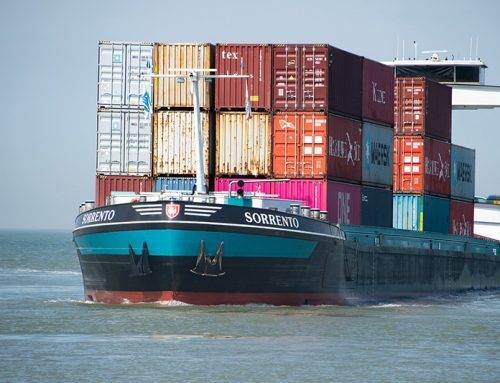How to Choose an International Trading Company
Sourcing materials through international trade has many potential benefits for companies of all sizes throughout the world. However, finding the right trading partner is integral to achieving success with international trading.
What is an International Trading Company?
An international trading company specializes in assisting companies with importing goods and materials. They manage all procedures and operations surrounding the process, including finding suppliers, managing exportation and importation logistics, handling customs requirements and coordinating the final delivery.
International trading companies vary in size, capabilities and specialties. Leeco Trading, for example, specializes in importing metals and fine chemicals (or fertilizers) for customers placing bulk orders. Other trading companies, however, may import large quantities of materials into a country and use a distribution network to fulfill smaller orders throughout that country.
The main takeaway is that international trading companies facilitate export and import operations, but not all trading companies operate the same way.
How to Select an International Trading Partner
When evaluating international trading partners, it is always best to have a conversation with a potential partner as opposed to relying on their website or marketing collateral. Your evaluation of trading partners will have many points specific to your business, but here are our top “trust indicators” to use when evaluating trading companies:
What goods and materials do I need, and does the trading company have experience and expertise with these goods?
Although not required, it is helpful if a trading company has experience sourcing the goods or materials you need. It takes time to evaluate producers and confirm quality and reliability, so traders with experience in your required goods will have a solid understanding of availability, pricing and lead time.
If a trading partner has no experience with your material, it is worth asking about their process for finding sources for a new material or good. Established trading partners often have effective operational procedures and good networking connections to find new suppliers quickly and efficiently.
What is the minimum order quantity (or MOQ), and are my needs greater or less than the MOQ?
As mentioned previously, some trading companies focus on delivering large orders to one or two customers at a time, while others distribute one massive import to hundreds – if not thousands – of customers.
The benefit of the first method is cost savings. Less work is involved in storing and distributing the materials once they clear customs. The second method adds a price premium, but is a good option for customers who do not have the ability to store and/or pay for large MOQs.
For reference, the MOQ for metals – such as steel and aluminum – is typically 500 metric tons. The MOQ for fine chemicals is typically 3,000 metric tons.
Where am I importing and does the trading company have experience importing into that country or region?
Understanding a country’s or region’s customs procedures is critical to the import process. Trading partners with experience importing into the destination country provide a valuable service to customers. Not only do they handle the often time-consuming and tedious customs process, but they are aware of any available credits, such as duties drawback.
However, as with the first question, it is not always necessary to partner with a trading company with direct experience importing to a specific country or region. Established trading companies have experience in navigating customs procedures and are often comfortable expanding into new markets.
How long has the company been in business and/or how many customers do they have?
This question is very important since you are trusting a trading partner with a valuable part of your company’s operations. Understanding a company’s longevity and customer-base can help weed out “fly by night” companies that are only interested in turning a quick profit.
Speaking with an existing or past customer is another great way to gauge quality of the trading partner.
It is important to note that the number of years a company has been operating is not always indicative of quality. Many trading companies are formed by leaders with extensive experience in international trade. For newer trading companies, find out the qualifications of its leadership as well as the qualifications of your main points of contact.
How to Find International Trading Companies
Now that you understand the right questions to ask possible trading partners, how do you begin your search to find these companies? Here are our top five suggested resources:
Online
Almost every business begins their search for an international trading partner online. A broad online search can provide you with good background knowledge and help you better understand the international trading landscape (i.e. trading companies, international trade financial institutions, government resources, etc.).
When researching an international trading company, it is important to look at more than just their website. Review their social media platforms, YouTube and any recent articles from credible news websites. A company’s website is a very high-level look at a company, but these other online resources can help paint a clearer picture.
Networking
Your network of peers is a valuable resource when searching for potential trading partners. Using your network provides you with candid feedback on trading partners, suggestions for researching partners and more.
If possible, stay within your industry and general company size. This will make it more likely that the trading partners your industry peers use are well-suited to your particular needs.
Local Business Associations
Area business associations are excellent resources when searching for trading partners. Many associations offer “Affiliate” memberships for companies that serve members of the association. These affiliate lists – if available – would be good places to start when searching for trading partners.
If your association does not offer affiliate memberships, they may offer educational webinars or resources, or may be able to provide recommendations upon inquiry.
Government Commerce Departments
Most national governments have a division responsible for international trade. These branches of government can be a wealth of information, from lists of international trading partners to resources for importing.
It is certainly worth finding the appropriate division to at least become more familiar with the import process and landscape.
Expos & Trade Shows
Events are an excellent way to find and meet with many international trading partners in one setting. Leeco Trading attends several large metals and fertilizer events throughout the world and meets with interested customers – as well as suppliers – at these events.
If you plan to attend an event to evaluate trading partners, it is strongly recommended that you contact the company first and make arrangements to meet with someone ahead of time. These events are often very crowded and limited on time, so pre-arranged meetings are the best way to ensure you speak with your top potential partners.
Final Thoughts: Don’t Rush the Process
The right international trading partner can be hugely beneficial for your business, but the wrong partner can have severe consequences. For this reason, the absolute cardinal rule of finding an international trading partner is to not rush the process. It is important to take your time and evaluate all options.
Leeco Trading is always happy to speak with businesses looking to import raw materials. Feel free to contact us and request a meeting today!



